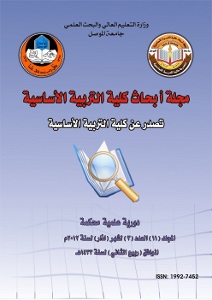Irony in Kurt Vonnegut's Slaughterhouse- Five
Abstract
" ". . . . . . . The research handles irony, which is Kurt Vonneguts main expedient to present his major theme in his novel Slaughterhouse- Five. It also presents the definitions of the two basic types of irony as a literary device: The Dramatic Irony and the Verbal Irony.The broad term, irony, refers to the recognition of a reality different from the masking appearance. Its presence is accompanied by a kind of black humour. The ironist introduces cool expressions at a time when his emotions seem to be really heated. He tries to be objective in order to give the reader an opportunity to detect the ironies. In this novel, Vonnegut focuses on the particularly human madness of war. He uses fantasy, science fiction, satire and importantly irony to examine the horrors and absurdities of what he has himself witnessed when he was a prisoner of war in World War Two (1945), especially the Allied bombing of Dresden.
